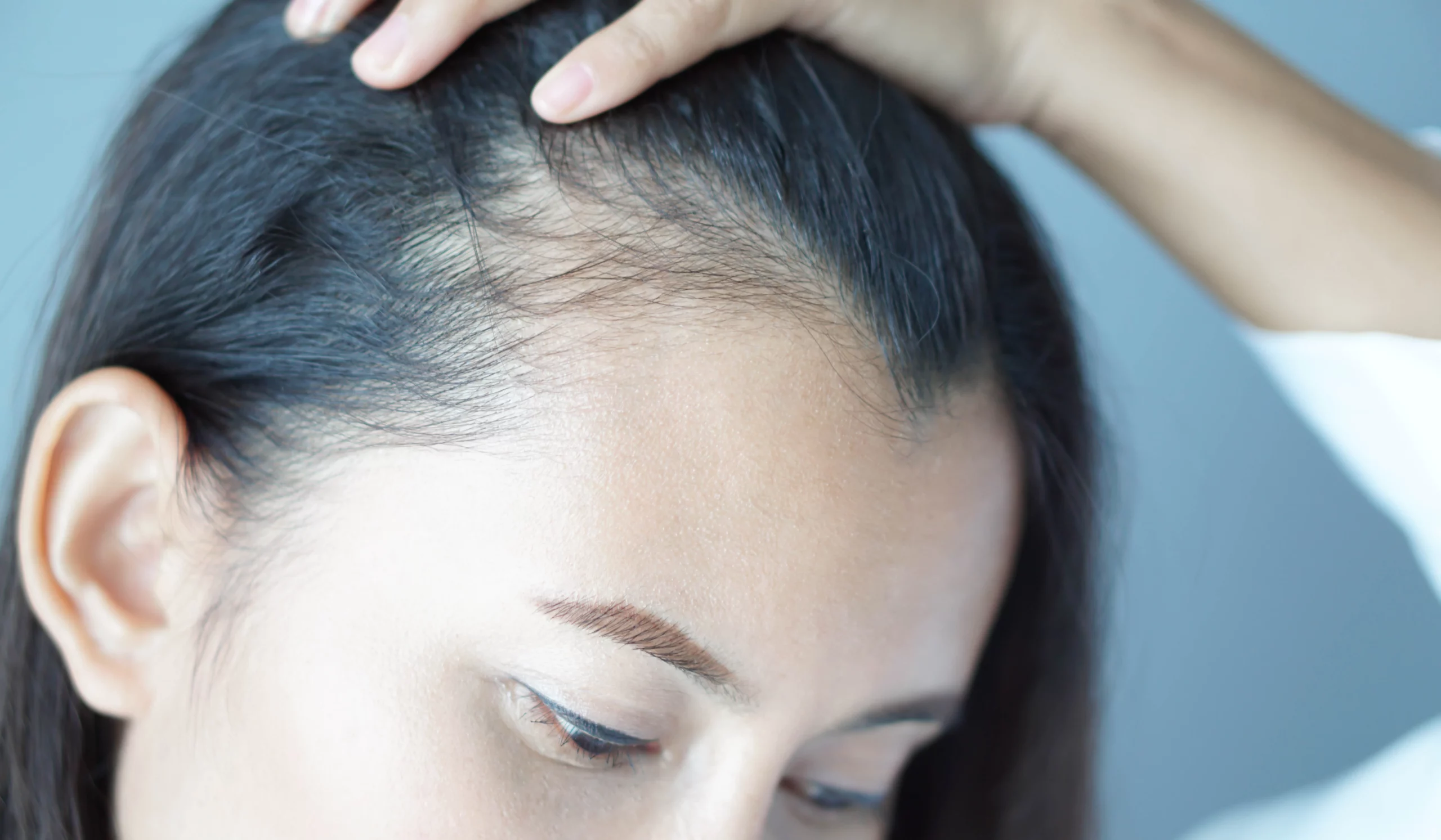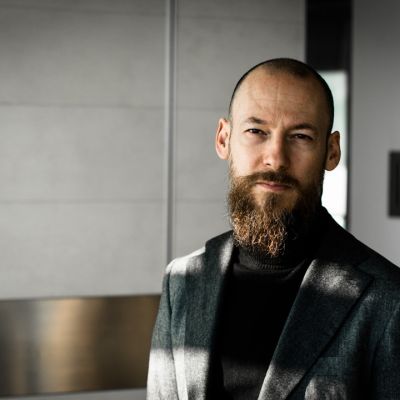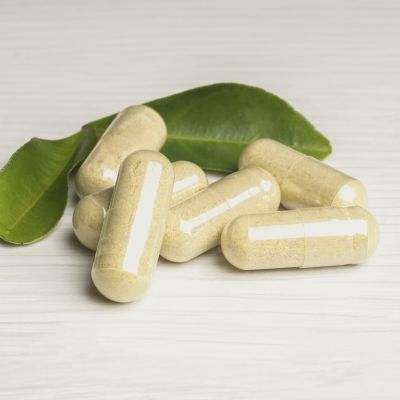Dry shampoo can be a timesaver after a sweaty gym session or when you’ve slept through your alarm and don’t have time to hop in the shower. It can take your mane from limp and oily to bouncy and renewed, all without the traditional water and shampoo routine.
But these immediate benefits are only part of the story. It’s possible to have too much of a good thing, after all. So if you wonder whether dry shampoo can damage your hair or lead to hair loss, we’re here to share the truth.
What Is Dry Shampoo?
Let’s start with the basics. What do we mean when we say dry shampoo? Far from being a modern-day invention, dry shampoo has been around for centuries in one form or another. When you look throughout history, you often see oil-absorbing products wherever water was scarce or bathing regularly wasn’t common.
As far back as the 1400s, people used wet clay to absorb oils and protect hair, with dry clay powders becoming more popular in later eras. By the 1700s, starch-based powders were common for degreasing the hair—and keeping wigs clean, whether used for hair loss or fashion. It was from these starch powders that modern dry shampoo developed.
The permanent-wave hairstyles of the 1930s didn’t work well with water, so people turned to commercial dry shampoos to remove oil. From there, dry shampoo became trendy and stayed on the shelves for decades.
The popularity of dry shampoo persists today. These water-free products typically contain ingredients like cornstarch, rice starch, or alcohol to combat oiliness. Some also contain ingredients like kaolin clay, arrowroot powder, magnesium stearate, and anti-caking agents.
How Does Dry Shampoo Work?
The mechanics behind dry shampoo are simple. The starch and alcohol absorb the sweat and oils in your hair and package them into granules. These granules sit on your strands and leave your hair looking fresher.
Here’s a tip: If possible, brush out your hair to spread the starches. This also helps remove the granules that contain oil. Keep in mind that you may still get a grainy texture after brushing because everyone’s hair reacts differently.
Dry shampoo comes in powders and, more commonly, aerosol sprays. This product can help extend your fresh look and get you out the door sooner. However, applying too much and using it too often could cause issues with your hair and scalp. We’ll get to those shortly.
What’s the Difference Between Dry Shampoo and Washing Your Hair?
First, it helps to know that dry shampoo isn’t actually shampoo. It’s more like a sponge. It sops up oils and other debris, but it doesn’t cleanse them away like water and traditional shampoo do.
Traditional shampoo contains helpful ingredients called surfactants, which bind oils with water—two substances that never get along. Think of them as forever being in a sibling rivalry. The surfactants pull the sebum oils from your hair and scalp and blend them into the remaining liquid, forming an emulsification. Then, you rinse the soapy residue from your hair and down the drain.
Dry shampoos don’t go anywhere near water—which is kind of the point. The starches bind with the oils, but that’s as far as they go. Whether aerosol or powder, these products capture the oils but can’t truly clean your hair or scalp.
Quick question: How often do you wash your hair with traditional shampoo? Everyone’s different, so maybe it’s every day, every two days, or only a couple of times a week. Regardless of how often you shampoo, don’t replace too many hair-washing sessions each week with dry shampoo. Why? Because dry shampoo can build up on your hair strands and scalp. Among other things, this buildup can cause poor scalp health and may even lead to hair loss.
Are There Risks To Using Dry Shampoo Too Much?
Dry shampoo can be safe for hair if you don’t use it too often. But let’s repeat: It’s a hair refresher, not a hair cleanser. If you apply dry shampoo too often, you could end up with:
- Brittle hair and breakage
- Clogged scalp
- Scalp rash or infection
- Chalky or greasy coating on your hair
Basically, the dry shampoo accumulates over time and leads to blockages. If your follicles become clogged, they can’t grow new hairs as quickly. Sometimes, other hairs can break or fall out, leading to hair loss.
The powders and starches in dry shampoo also tend to clump hair strands together. Hair has natural growth and shedding phases, so the hair that sheds normally could still be connected to neighboring hairs. In other words: You might have more hair falling out than usual. Using dry shampoo too often makes it more likely the hairs will clump.
Another way to lose more hair is through brushing. Clumped hair is like the tangled hair you get on a windy day. Any rough tugging with a comb could loosen the hair from the follicle and take others with it.
Can Dry Shampoo Lead to Hair Loss?
Research doesn’t seem to show that dry shampoo itself directly causes hair loss. However, if you use it too often—enough for it to plug hair follicles or trap bacteria and cause scalp infections—it could result in hair loss.
In addition, the ingredients in dry shampoo could also weaken your hair follicles. If you have weakened follicles, it means that your hair has a weaker foundation, and there’s not as much surrounding tissue holding the hair in place. It’s a prime way to get unwanted hair loss.
Dry shampoos often contain alcohol, as well. While most of the alcohol in dry shampoo evaporates, it still has time to dry out the surface of your skin and hair. Dried-out hair becomes more brittle and is more likely to break.
Can Other Hair Products Cause Hair Loss?
There are a lot of hair products out there, and they’re not all created equal.
Shampoos and Conditioners
Regular shampoo and conditioner are generally safe for your hair, but their ingredients can affect the look and feel of your locks. Certain hair products work best for different types and textures of hair. They might make your hair feel like straw or leave it flatter than normal, but they’re not likely to cause hair loss.
Products that don’t follow the right regulations, on the other hand, might contain harmful chemicals like formaldehyde or toxic heavy metals. These ingredients can harm your hair and scalp health. They might even cause hair loss. To find the best options, check out the ingredients label and make sure the company follows FDA guidelines.
Styling Products
Styling products like hairspray, pomades, and gels are different from shampoos. Instead of washing out, they stay on your hair to lift or hold it in place. Sometimes, these styling products can dry out your hair and give you the opposite results. If you wanted extra lift, you might get dull, flat hair. If you wanted a strong hold, you might get greasy locks that turn flaky.
These styling products are also more likely to clog your scalp as the product builds up, layer after layer. With a clogged scalp, you could see more of the side effects of poor scalp health.
Dry shampoo isn’t shampoo, so is it a styling product? In terms of how you apply it, dry shampoo is more similar to styling products than regular shampoo. That’s why it helps to consider what styling products can do to your hair and scalp. If dry shampoo gets the chance to build up, it could create many of the same scalp issues.
How Often Should You Use Dry Shampoo?
Dry shampoo shouldn’t replace your traditional water and shampoo cleaning. That means you shouldn’t use it daily.
It might be necessary if you’re very ill or in the hospital and can’t get to the shower easily. Or, you might spend a week camping and have limited access to water. But as soon as you feel better or arrive home, you should cleanse your whole head to remove the dead skin cells, sweat, and oils (not to mention that campfire smell). As an added bonus, the hair wash invigorates your scalp, encouraging blood circulation and healthy hair follicle growth.
If you use dry shampoo several times a week, that’s often enough for buildup to happen. So, what’s a good frequency?
Aim to use dry shampoo no more than once or twice a week. Dry shampoo is beneficial if you’re short on time or want to conserve water, but it’s not a miracle product.
If you already have thinning hair or poor scalp health, you’re more likely to see immediate negative effects when using dry shampoo. You should speak to a hair loss expert or dermatologist before using the product, in case it worsens your condition.
Hair washing is an essential part of grooming and hair hygiene, so don’t skip it too often. More than giving your hair a fresh fragrance, hair washing cleanses away everything that accumulates on your scalp each day. It’s safe to use dry shampoo here and there, but it can never replace the many scalp health benefits of traditional shampoo and water.
Still tempted to reach for your dry shampoo? While they do have their benefits such as water conservation, convenience and hair color preservation, keep in mind that experts have differing opinions on how much is too much. For people with normal, healthy hair, occasional use is most likely fine. Limiting your dry shampoo use to one or two times a week, along with regular hair washing, is your best option. But, if you’re already dealing with thinning hair, it may be a good idea to skip dry shampoo altogether.
Shampooing regularly is important to the health of your hair because leaving oil, dead skin cells and sweat on your scalp can negatively impact your hair follicles. Rather than reaching for the dry shampoo, which can cause hair breakage and thinning, lather up your tresses daily or every other day to help maintain a clean scalp and healthy hair.
Dealing with thinning hair can be a frustrating process. There are many causes of hair loss in addition to overusing dry shampoo, including hormones, diet, genetics, and other medical issues. If you are suffering from hair loss, HairClub can help.
HairClub has been serving club clients for nearly 50 years, and we take pride in changing lives one hair at a time. Wherever you are on your hair loss journey, we have proven solutions that work for you.
Book your consultation today with a hair loss expert to see how we can revitalize your head of hair.






